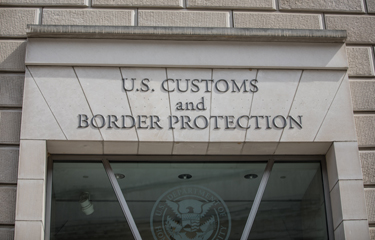American Seafoods can now face punitive action from U.S. Customers and Border Protection if it continues to use its controversial Bayside Program, by which it sidestepped Jones Act restrictions regarding the use of non-American transportation to import its seafood via the use of a 100-foot dead-end rail line in New Brunswick, Canada.
On 7 July, 2022, U.S. District Court Judge for the District of Alaska Sharon L. Gleason lifted an injunction she had imposed on CBP in October 2021 to prevent CBP from issuing additional fines and to prohibit it from collecting on the fines it had already issued.
“This court finds that the preliminary injunction warrants modification and dissolves the preliminary injunction with respect to the ongoing enforcement of the Third Proviso of the Jones Act as follows: Effective on the day following the date of this order, defendants are no longer enjoined from enforcing the Jones Act as to plaintiffs’ ongoing use of the [Bayside] Route at any time after the date of this order,” Gleason wrote.
Her order means, beginning 8 July, the CBP could fine American Seafoods, its subsidiaries Alaska Reefer Management (ARM), and Kloosterboer International Forwarding (KIF) – which operated the program – and any other party involved in its use. Beginning in August 2021, CBP issued more than 170 notices to entities involved in the Bayside Program, covering violations dating back up to five years.
The notices “have been served on almost all customers, participants, and servicers associated with contracting to transport seafood products or facilitate the delivery of such seafood products via the Bayside Program,” according to a lawsuit brought against CBP by American Seafoods’ subsidiaries.
KIF had been served with two penalty notices totaling fines of USD 25 million (EUR 21 million); ARM had received penalties of USD 65 million (EUR 54.7 million); five ship owners contracted by ARM received nine penalty notices totaling fines of USD 55 million (EUR 46.3 million); at least nine of KIF’s customers have been issued penalties totaling USD 139 million (EUR 117 million); two cold-storage facilities in Alaska and Bayside contracted by KIF have received penalties of USD 37 million (EUR 31.1 million); and two importers and nine trucking companies contracted by KIF were fined USD 95 million (EUR 79.9 million).
By Gleason’s order, those fines will not be collected.
“Defendants are precluded from enforcing the notices of penalty previously issued to plaintiffs for alleged violations of the Third Proviso of the Jones Act arising from plaintiffs’ use of the [Bayside] Route to transport frozen seafood from Alaska to the eastern United States prior to the initiation of this litigation,” she wrote.
However, if a separate case currently working its way through the U.S. court system is resolved in a way that interprets the law differently than Gleason, CBP may eventually be allowed to collect, Gleason said.
“Reasonable jurists could differ on the determination of that legal issue,” she wrote.
Photo courtesy of Nicole Glass Photography/Shutterstock







